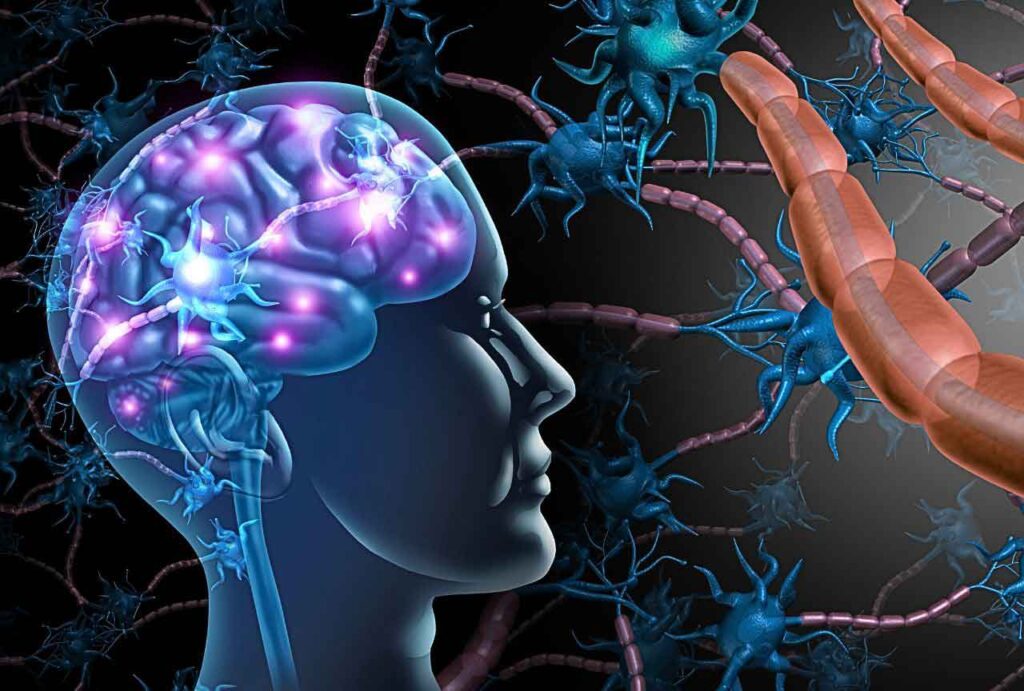Have you ever crammed for an exam only to find your mind mysteriously blank when the test paper stares back? Or spent hours pouring over textbooks, feeling like information just slips through your fingers? You’re not alone. The struggle to retain information is a common foe for students and lifelong learners alike.
The good news? This isn’t a battle you’re destined to lose. Our brains are amazing learning machines, but sometimes they need a little help navigating the maze of information. In this article, we’ll crack the code on memory and equip you with powerful techniques to transform yourself from a forgetful studier into a knowledge-retention champion.
Why We Forget: Demystifying the Information Abyss
Ever wonder why that crucial fact you crammed for vanishes the moment you flip the test paper? The culprit isn’t a personal failing – it’s the way our brains naturally process information. Here’s the lowdown on why forgetting happens, and how it relates to your study struggles.
Think of your brain as a busy office. It receives a constant stream of information – emails (incoming sensory details), reports (readings), and meetings (conversations). But just like any office, it has limited space for active processing. This is where short-term memory comes in. It’s like your brain’s secretary, quickly sorting through the incoming data and prioritizing what needs immediate attention.
However, the secretary can only hold onto things for a brief period. Unless the information is deemed important enough for long-term storage, it gets tossed in the mental “outbox” – forgotten. This is why passively reading a textbook or highlighting notes might not be enough. The information never gets flagged as crucial and gets lost in the daily information overflow.
Another key factor is encoding, the process of transferring information from your short-term memory to your long-term storage. Think of it like filing documents in your office. If things are simply tossed in a random drawer, retrieval becomes a nightmare. Effective encoding involves actively engaging with the material, making connections to existing knowledge, and finding meaning in what you’re learning.
Now, let’s address some common forgetting culprits that plague students:
- Cramming: It’s like a last-minute filing frenzy before a big presentation. You cram everything in at once, overwhelming the system and leading to poor encoding.
- Information Overload: Bombarding your brain with too much at once is like having a messy desk – important details get buried and forgotten.
- Passive Studying: Highlighting or re-reading without actively processing information is like skimming emails – they never get flagged for long-term storage.
Understanding why forgetting happens is the first step to overcoming it. By employing active learning techniques and creating a filing system for your brain, you can transform the information overload from a frustrating abyss to a well-organized knowledge library.

Also Read: The Only 5 Study Hacks You Need To Ace your Exams
Effective Techniques to Remember What You Study
Forget about rote memorization and endless re-reading. Here’s your arsenal of powerful techniques to transform fleeting information into long-lasting knowledge:
1. Active Learning: Engage Your Brain’s Processing Power
- Summarize and Explain: After reading a section, condense key points into a concise summary in your own words. Explain the concepts out loud as if teaching someone – the act of verbalization strengthens memory pathways.
- Question and Answer: Don’t be a passive recipient of information. Turn headings into questions and actively seek answers within the text, or create your own practice questions to test understanding.
- Discussion Dynamics: Studying with a group can be a memory powerhouse. Discuss concepts with peers, explain ideas to each other, and challenge each other’s understanding.
2. Spaced Repetition: The Art of Strategic Review
Our brains naturally forget over time. Spaced repetition combats this by strategically re-exposing you to information at increasing intervals. Here’s the trick:
- Flashcard Power: Flashcards are a classic for a reason. Use them effectively by reviewing initially at short intervals (e.g., daily), gradually increasing the spacing between reviews (e.g., every other day, then weekly, then monthly) as your memory strengthens.
- Digital Reinforcement: Utilize spaced repetition apps to create customized study schedules and automate the review process, ensuring you revisit key concepts at optimal intervals.
3. Mnemonics: Memory Hacks with a Twist
Mnemonics are creative memory aids that take advantage of the brain’s love for patterns and associations. Here are some unconventional approaches:
- The Loci Technique: Imagine a familiar location, like your house. Mentally place key pieces of information at specific landmarks within the location. When recalling information, visualize the location and “retrieve” the information you placed there.
- Acrostic Artistry: Create an acrostic sentence where the first letter of each word corresponds to a key point you need to remember (e.g., HOMES: Hierarchy of Needs – Maslow).
- Storytelling Sojourn: Weave the information you need to remember into a compelling narrative. This creates vivid associations that enhance recall.
4. Visualization: Paint a Picture in Your Mind
Engaging visual processing can significantly boost memory. Here’s how:
- Mind Mapping Magic: Create mind maps – visual representations of information with central concepts branching out to connected details. Make the map more visually appealing by using colors, images, and symbols.
- Diagramming Dynamics: When dealing with processes or relationships, create diagrams or flowcharts to illustrate the connections between concepts.
5. The Power of Priming: Food for Thought (Literally!)
Believe it or not, what you eat can influence memory. Here are some brain-boosting food recommendations:
- Omega-3 Power: Studies suggest Omega-3 fatty acids, found in fatty fish and nuts, can enhance cognitive function and memory.
- Berries: Berries are rich in antioxidants that can protect brain cells from damage and improve memory function.
- Hydration: Dehydration can negatively impact memory. To keep your brain functioning at its best, stay hydrated throughout the day.
Bonus Tip: Sleep on It!
Sleep plays a crucial role in memory consolidation. Getting enough quality sleep allows your brain to process and solidify the information you learned during the day.
By incorporating these techniques and creating a study routine that works for you, you’ll be well on your way to becoming a master of information retention. Remember, consistency is key! The more you actively engage with the material and strategically review information, the stronger your memory pathways will become. So, ditch the forgetfulness and unlock your full learning potential!

Also Reading: 13 Best Free AI Tools For Students
Debunking Memory Myths: Separating Fact from Fiction
We’ve all heard them – those supposed memory boosters that turn out to be more myth than magic. Here’s a breakdown of some common misconceptions and the science behind why they don’t quite deliver:
Myth #1: Chewing Gum Fuels Focus and Memory
The reality: While chewing gum might increase alertness due to increased blood flow, research shows minimal to no significant impact on memory function.
Myth #2: Classical Music Makes You Smarter (The Mozart Effect)
The initial study that sparked this myth has been heavily criticized for methodological flaws. Subsequent research hasn’t found consistent evidence that listening to classical music enhances cognitive abilities.
Myth #3: Multitasking is a Memory Multiplikator
Our brains are wired for focused attention, not juggling multiple tasks at once. Multitasking often leads to divided attention and decreased performance on all tasks, including memory encoding.
Myth #4: Sugar Rush Fuels Memory
While a moderate intake of glucose can provide energy for brain function, a sugar overload can have the opposite effect. Spikes in blood sugar followed by crashes can impair memory and concentration.
So, what actually works?
Focus on the techniques outlined earlier – active learning strategies, spaced repetition, and mnemonic devices. These methods have been scientifically proven to enhance memory encoding, retrieval, and long-term knowledge retention.
Remember, your brain is a powerful learning machine, but it needs the right tools and strategies to function optimally. By debunking these myths and employing effective techniques, you can unlock your full memory potential and become a lifelong learner.



